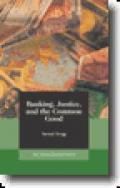


“[Wealth] is an excellent gift of God, answering the noblest ends. In the hands of his children, it is food for the hungry, drink for the thirsty, raiment for the naked: It gives to the traveller and the stranger where to lay his head. By it we may supply the place of an husband to the widow, and of a father to the fatherless. We may be a defence for the oppressed, a means of health to the sick, of ease to them that are in pain; it may be as eyes to the blind, as feet to the lame; yea, a lifter up from the gates of death!” –John Wesley (“The Uses of Money”)
From How God Makes the World a Better Place, David Wright’s new Wesleyan primer on faith, work, and economics:
What allowed John and Charles to have such a great impact? The central emphasis of their ministry was the belief that people matter because they are created in the image of God. They also realized that people had struggles and misplaced priorities because the image of God was damaged in the fall. Therefore, their life and ministry worked to restore the lives of people that had been damaged by the fall. These beliefs led them to care for people who had been forgotten. It also led them to create structures that would help disciple people and create healthy, munities.
…[John Wesley] taught and lived spiritual principles that were drawn straight from the Bible and that were shaped and applied according to the best knowledge of his day, the wisdom of godly people, and the reality of human experience.
Such principles, Wright argues, lead us to discover that our on-the-ground discipleship and stewardship activities are enhanced when “three powerful dimensions of life are healthy and in proper alignment with each other.”
A mitment to spiritual well-being. We live out of the riches of our hearts. This results in mitment to personal discipleship or what Wesley called works of piety that flow from our love for God.
A personal intervention with social systems. We help to make the world a better place when we work to create social systems that focus our collective efforts to improve the lot of munity’s least powerful members. We are concerned not only with the poor, but the structures that promote a munity where people can e poverty. These social systems include legal, political, and economic systems that enable the creation of well-being for all. The vast system of exchange that we call “the economy” is a critical element of the stewardship position God has given us. Like work, economic exchange doesn’t just move goods around; it creates value and well-being because we serve one another’s needs.
A personal engagement with the needs of others. Even before someone is able to make a contribution through work, we are concerned about their needs because they are created in the image of God. These are what Wesley called works of mercy that flow from mand to love our neighbor.
For more, grab the primer here.
Also, see the other primers in the series: Reformed, Baptist, and Pentecostal.
[product sku=”1301″]









